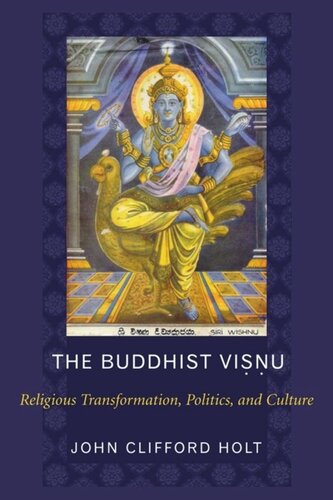

Most ebook files are in PDF format, so you can easily read them using various software such as Foxit Reader or directly on the Google Chrome browser.
Some ebook files are released by publishers in other formats such as .awz, .mobi, .epub, .fb2, etc. You may need to install specific software to read these formats on mobile/PC, such as Calibre.
Please read the tutorial at this link: https://ebookbell.com/faq
We offer FREE conversion to the popular formats you request; however, this may take some time. Therefore, right after payment, please email us, and we will try to provide the service as quickly as possible.
For some exceptional file formats or broken links (if any), please refrain from opening any disputes. Instead, email us first, and we will try to assist within a maximum of 6 hours.
EbookBell Team

5.0
28 reviewsJohn Holt's groundbreaking study examines the assimilation, transformation, and subordination of the Hindu deity Visnu within the contexts of Sri Lankan history and Sinhala Buddhist religious culture. Holt argues that political agendas and social forces, as much as doctrinal concerns, have shaped the shifting patterns of the veneration of Visnu in Sri Lanka.
John Holt's groundbreaking study examines the assimilation, transformation, and subordination of the Hindu deity Visnu within the contexts of Sri Lankan history and Sinhala Buddhist religious culture. Holt argues that political agendas and social forces, as much as doctrinal concerns, have shaped the shifting patterns of the veneration of Visnu in Sri Lanka.
Holt begins with a comparative look at the assimilation of the Buddha in Hinduism. He then explores the role and rationale of medieval Sinhala kings in assimilating Visnu into Sinhala Buddhism. Offering analyses of texts, many of which have never before been translated into English, Holt considers the development of Visnu in Buddhist literature and the changing practices of deity veneration. Shifting to the present, Holt describes the efforts of contemporary Buddhist monks in Sri Lanka to discourage the veneration of Visnu, suggesting that many are motivated by a reactionary fear that their culture and society will soon be overrun by the influences and practices of Hindus, Muslims, and Christians.